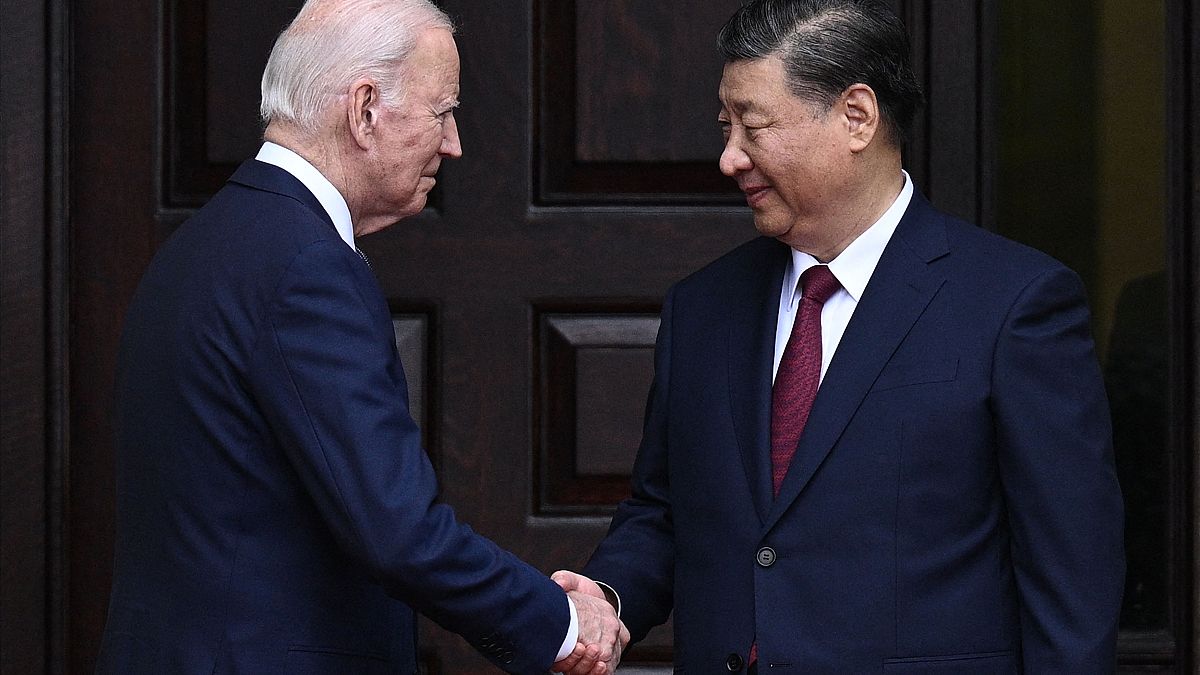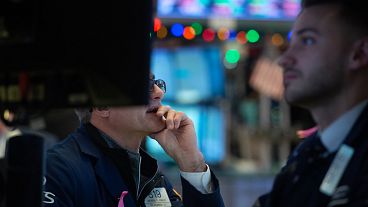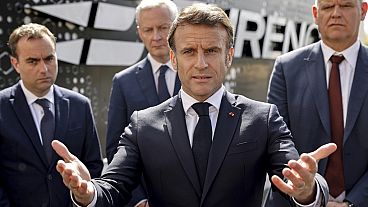The leaders of the world's largest economies left with friendly words and a set of agreements after their highly anticipated meeting.
US President Joe Biden and Chinese leader Xi Jinping agreed on Wednesday to open a presidential hotline, resume military-to-military communications and work to curb fentanyl production, showing tangible progress in their first face-to-face talks in a year.
Biden and Xi met for about four hours on the outskirts of San Francisco on the sidelines of the APEC Summit to discuss issues that have strained the relations. of the world's two largest economies.
In a significant breakthrough, the two governments plan to resume military contacts that China severed after then-House of Representatives Speaker Nancy Pelosi visited Taiwan in August 2022.
“We’re back to direct, open clear direct communication on a direct basis,” Biden said.
China and the US reached an agreement to curb fentanyl production, which is a deadly component of drugs sold in the United States.
The two leaders discussed the ongoing wars, and according to unnamed officials, Biden appealed to Xi to use his influence, especially to press on Iran that it would be unwise to expand the conflict in the Middle East.
Thawing economic relationship
Xi came into the meeting as China's economy struggles to recover from sluggish growth.
According to Beijing, the Chinese President pressed Biden to lift sanctions and change policies on export controls.
"President Xi Jinping pointed out that US actions against China regarding export control, investment screening and unilateral sanctions seriously hurt China’s legitimate interests," says a Foreign Ministry handout. "China’s development and growth, driven by its own inherent logic, will not be stopped by external forces. It is important that the US side take China’s concerns seriously and adopt tangible steps to lift its unilateral sanctions so as to provide an equal, fair and non-discriminatory environment for Chinese businesses."
There are no signs of the US President considering lifting any of the export controls. Biden said that the US and China had to ensure that competition between them "does not veer into conflict" and to manage their relationship "responsibly."
Analysts agreed that the meeting itself was already healing some nerves back in the Asian country, where foreign investment has taken a downturn recently.
As part of the talks, the US and China agreed to open a dialogue about artificial intelligence, as the White House grows concerned about China’s use of AI, particularly for military purposes.
The Chinese President met business executives, including the representatives of Apple, BlackRock and Pfizer in San Francisco, where he said "China is ready to be a partner and friend of the United States, and there is plenty of room for bilateral cooperation."
He assured his audience that "no matter how the global landscape evolves, the historical trend of peaceful coexistence between China and the United States will not change."
The Chinese leader had told Tesla Inc. CEO Elon Musk at the event that he supports Tesla's development in China, according to a statement from the automaker.
Warm tone and pandas
Biden said he and Xi agreed to high-level communications. "He and I agreed that each one of us can pick up the phone call directly and we'll be heard immediately."
Xi called the US-China relationship "the most important bilateral relationship in the world." "For two large countries like China and the United States, turning their back on each other is not an option," he said.
Another positive sign: Xi signaled that China would send the US new pandas, just a week after three from the Smithsonian National Zoo were returned to China. There are only four left in the United States — at the Atlanta Zoo, and their loan agreement expires next year.
However, after all the warm words at the conclusion of his press conference on Wednesday, Biden didn't fail to call the Chinese leader a 'dictator'. Again.



